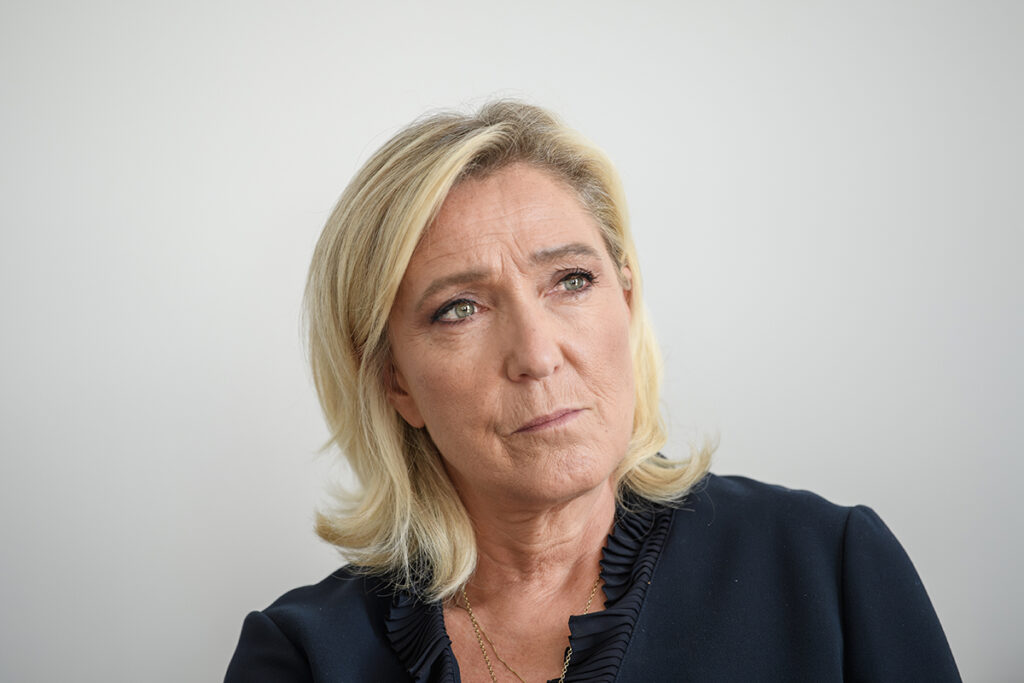The recent decision by a Paris court to impose a five-year election ban on Marine Le Pen, the prominent leader of France’s far-right party, for embezzling European Union funds has sparked intense debate about democracy and judicial impartiality. This ruling effectively prevents Le Pen from participating in the 2027 presidential elections, prompting immediate legal appeals and widespread political reactions.
Why Marine Le Pen Faces a Five-Year Ban
The judicial decision against Marine Le Pen stems from convictions relating to the misuse of EU parliamentary funds. The court emphasized that allowing a convicted official to seek public office would severely disrupt democratic order and undermine public trust in political leadership. The judges highlighted that their verdict aimed to prevent preferential treatment of politicians, reinforcing that accountability applies equally to all citizens.
The panel described their ruling as “proportionate and necessary” for safeguarding democratic standards and maintaining public confidence in the electoral process. This perspective aligns with recent statements from France’s Constitutional Council, affirming that immediate ineligibility for convicted politicians is constitutionally valid, provided it is proportional and respects voter freedoms.
Le Pen’s Response and Political Fallout
Marine Le Pen vehemently criticized the court’s decision, describing it as “a democratic scandal” and “a real shame.” Addressing fellow lawmakers at the National Assembly, Le Pen argued that the ruling was politically motivated, designed explicitly to derail her growing electoral momentum ahead of the 2027 presidential election. She pledged to challenge the ban aggressively, hoping an appeal would overturn the ruling in time for her to participate in the forthcoming elections.
In a twist of irony, past statements by Le Pen resurfaced online, showing her advocating for lifelong bans against politicians convicted of embezzlement. This has intensified public debate about political hypocrisy and accountability, further complicating her defense.
The ruling has generated substantial repercussions within far-right political circles across Europe, where similar movements have recently made significant electoral gains. European political observers view the decision as potentially influencing strategies and electoral prospects for far-right parties continent-wide.
Historical Context: France’s Political Accountability
Marine Le Pen’s case is not isolated in the broader context of French politics. High-profile politicians from various ideological backgrounds have previously faced similar bans due to corruption and fraud. Notably, former Prime Minister François Fillon suffered a devastating blow to his political career in 2017 when corruption charges resulted in a ten-year election ban.
Additionally, Alain Juppé, another conservative Prime Minister, initially received a ten-year ban in 2004 for corruption, which was later reduced to one year on appeal. Socialist Budget Minister Jérôme Cahuzac also faced a five-year ban after admitting to tax fraud in 2018. Even Le Pen’s father, Jean-Marie Le Pen, had previously received a one-year ban following a violent incident during the 1997 parliamentary campaign.
More recently, French prosecutors sought a significant ineligibility period and prison sentence for former President Nicolas Sarkozy, accused of illegally financing his 2007 presidential campaign with Libyan funds. These historical cases underscore France’s evolving judicial approach to maintaining political integrity and public trust.
Legal Appeals and Future Implications
Currently, the Paris appeals court is reviewing multiple appeals related to Le Pen’s case. A final decision is expected by mid-2026, potentially altering the political landscape ahead of the presidential elections. Le Pen has also indicated plans to seek intervention from France’s Constitutional Council to assess the proportionality and legality of the immediate ineligibility imposed upon her.
As this legal battle unfolds, the outcome will significantly shape the future of France’s political scene and potentially impact electoral strategies for far-right parties across Europe. Observers eagerly await the final verdict, aware that it will set crucial precedents concerning judicial independence, political accountability, and democratic norms.


